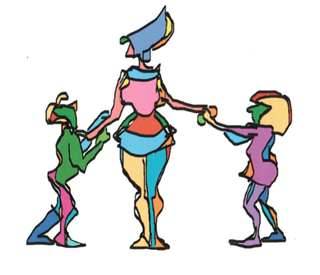Neuroscience
Can Neuroscience Help Me Send My Daughter to College?
Framing the move as differentiation not separation can soften the pain.
Posted July 27, 2017
It's been almost two months since my last blog post, and I should be reporting on the 6th Interpersonal Rule that undermines healthy relationships. However, I have been neurologically hijacked by the daunting task of sending my first child to college. In three weeks, five days, 12 hours and 15 minutes (but who's counting) I will load the family van and travel to Philadelphia to drop her off. I have been anticipating this day from the moment she and her twin brother were born 18 years ago. And yet, as the day approaches, I fear I am ill-equipped for her departure.

The other day, as I submitted health forms, paid college bills, and searched online for extra-long fitted sheets and micro fridges, I found myself thinking about how much easier life would be if I was a frog (a defense against the sadness, I imagine). Parenting would be so much easier as an amphibian. When my maternal urges kicked in I would casually lay a pile of 20,000 eggs. Some random, detached male would swing by to deposit sperm on top of the eggs and voila—thousands of babies. Some of the eggs would hatch into tadpoles and some of the tadpoles would grow limbs and a head. Those that survived would eventually shrink their tails and enlarge their head until an adult frog emerged, ready to carry on the family legacy. My job would have been done after laying the eggs, with no emotional investment in whether any of them grew a head, tail, or legs or even wanted to go to college.
Sadly, I am not a frog. I painstakingly planned a pregnancy, grew two children inside of me at the same time, loved and cared for them when they were totally dependent and watched as they developed into adults with their own interests, humor, and struggles. I did this fully conscious that they would one day leave home.
I believe that Relational Neuroscience, the study of how and why we are wired for love, can and will help me through most relational difficulties in life. Perhaps it is wishful thinking, but I feel the emotions of life’s biggest challenges could be magically modulated if I know how it is impacting my brain and body. Mostly, this has worked for births and deaths, in sickness and in health. However, it is failing me now as I anticipate taking my child to college. Some days it feels like I am about to loan my favorite piece of heirloom pottery to a fraternity. Other days it feels like I am saying good-bye to my best friend. Mostly it feels like my chest has been cracked open and my rib cage is no longer protecting my heart.
Some people have told me that this is my daughter's time to "separate and individuate." That this is an important developmental step in her ability to stand on her own two feet. Problem is, I don't believe that happens. I do not believe there is a biological imperative to separate ourselves from others. Through the years my relationship with my daughter has been one of the primary relational templates of my life—shaping almost every thought and feeling I have had. It is simply that way with your children.
Of course there is change with this move, but I prefer the term differentiate—maybe it feels gentler, maybe it allows me to hold onto her in some way the harshness of separation does not. But maybe, this is where neuroscience does help me. Differentiation is about clarity, not distance. It is about seeing the edges where we meet rather than the vast space in between us when we are apart. And it feels like a more accurate description of what will actually happen when I drop my beloved daughter off at college. She will set up a second home in a dorm and later in an apartment and maybe even a home of her own. But she will always be wired into my dopamine reward system—so that her joy, successes and love will always register in my body. She will always be wired into my stress response system so that her fears, pains, and heartache will always send the norepinephrine surging through my body.
So, perhaps what neuroscience teaches me and all the other parents dropping kids off at college in a few weeks is that if your heart feels unbearably exposed, if you are staying up at night with fears of your child’s immediate future, you are in good shape. Your children are just where they need to be—deeply embedded in your nervous system and in your life. Hold them tight in this next adventure and send them loving kindness every day. And when it feels like too much and you can’t breath—call me, I will be gasping for breath right along with you.


